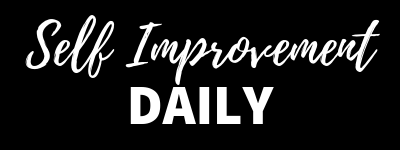This article may contain affiliate/compensated links. For full information, please see our disclaimer here.
How can we invoke the power of positive thinking inside us? How do we reap the benefits of a positive attitude? Positive words and phrases form the vehicle to help us get there. Here’s why.
If you think about it, even before uttering them aloud, we use words in our mind to convey our thoughts to ourselves. Since words are like building blocks that convey what we think and feel, using the right words is a significant step in developing a positive attitude.
How to Use Positive Words in Your Daily Conversations
Below are 5 tips that can remind you to use positive words and phrases in your daily interactions, with yourself and others.
1. Get Out of the Habit of Criticizing Yourself
The first and foremost subject of your positive words and thoughts should be yourself. As long as you don’t subject yourself to negativity, it becomes easier to project that positive mental attitude onto external circumstances and people.
So look out for self-criticism – the moment you recognize it happening, just put a stop to it. It is okay to admit your mistakes – and you should, at the very least to yourself – but constantly berating yourself over them hurts your self-esteem, and should be avoided.
Accept that it could happen to others as well, learn from it, and move on.
You could say:
“Hey, I messed up; but it could happen to others as well. It’s a good thing this happened because this is what I can learn from it, and move on.”
Need help quieting your inner critic? Check out our free ebook!
2. Avoid Constant Criticism of Others
Now, the same rule should be applied when criticizing others. Realize everyone is different, and everyone’s perceptions are different.
Use a reverse tag line to help you with this:
“So she may have messed up but that could happen to me as well. Let me see if I can face up to the challenge of not playing the blame game, but instead, use my energy in being positive about it, and work towards a resolution.”
It’s good practice to give others the benefit of the doubt when things go wrong. Instead of placing blame, seek resolutions to the problem instead.
3. Quit Getting Upset About Situations Beyond Your Control
Getting upset about a bad or negative situation doesn’t help at all. Yes, it’s important to acknowledge your feelings in the moment as they are completely valid. That said, staying angry or frustrated or annoyed merely serves to continue making you feel bad.
How about this tagline for a positive spin:
“Hey, this is messed up but stuff happens. Maybe it’s a good thing this happened, as it gives me a chance to hone my skills in dealing with such a situation.”
In fact, you can use whatever is relevant for the current situation, after the phrase,“Maybe it’s a good thing this happened because,…”.
Consider it a challenge to describe the situation in positive words and positive phrases, or creatively come up with a positive aspect out of it. You will find that a lot of times, it is not that hard to do it.
4. Change Your Internal Dialogue When Dealing With Fear
The moment you identify fear creeping into your mind, change your internal dialogue to reverse the thought and put a positive spin to it.
Use these phrases whenever a “what if” creeps into your mind:
“I’ll handle it” or “I’ll figure it out”.
Once you resolve to “handle it” or “figure it out”, more often than not, you will find ways to deal with the situation and to deal with your fear of the situation.
5. Change Your Vocabulary as a Daily Habit
As a daily habit, practice avoiding negative phrases in your language with yourself, as well as with others. Phrases such as “I can’t do it”, “It’s impossible for me”, just align our mind to the negative, and serve little purpose in getting something accomplished.
Instead, instill positive self-talk by using alternative words and phrases such as:
“I can, if I apply myself to it.” or “It’s possible, if I put in the time and effort.”
These phrases, while acknowledging the task requires effort, put the responsibility of handling it on you. That will help you set your priorities, and if the task is not your priority at the moment, it still doesn’t verbally diminish your capacity to do it, should the priorities change later.
Becoming a More Positive Person
When such positive words and positive phrases are regularly used in our vocabulary and thought process, you will notice an interesting thing happening; your psychology and philosophy of life will change.
Being positive becomes a natural habit to you, which you will find hard to get rid of, even if you want to. But the question is – once you get to that point, why would you want to?






